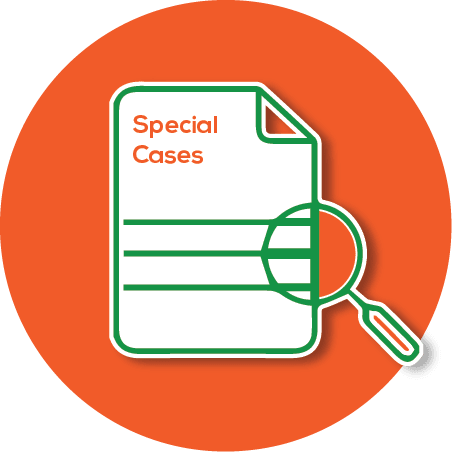nzipo (OLANZAPINE)
Introduction to Nzipo
Nzipo is a well-regarded medication primarily used in the management of certain mental health conditions. It is formulated with Olanzapine, an antipsychotic agent known for its ef... See More

What is Nzipo?
Nzipo is an atypical antipsychotic medication primarily used to treat schizophrenia, bipolar disorder, and sometimes depression in combination with other medications.

What is the usual dose of Nzipo?
- For adults: The usual starting dose for schizophrenia is 5 to 10 mg per day, which may be increased gradually based on individual response.
- For bipolar disorder, the starting dose is usually around 10 mg per day.
- The dose may vary depending on the condition being treated and individual factors

How do I take Nzipo?
- Nzipo is typically taken once a day, with or without food.
- It can be taken as a tablet or disintegrating tablet.
- Always follow the specific instructions provided by your doctor.

For how long do I take Nzipo?
The duration depends on your condition. For chronic conditions like schizophrenia or bipolar disorder, Nzipo may be taken long-term, but always follow your doctor's guidance.

What is Nzipo used for?
Nzipo is used to treat:
- Schizophrenia
- Bipolar disorder
- Sometimes as an adjunct for depression when other treatments are not sufficient.

How long does it take for Nzipo to start working?
Nzipo may start to have noticeable effects within 1 to 2 weeks, but it can take several weeks to reach its full effect.

Is Nzipo effective?
Yes, Nzipo is generally considered effective in managing the symptoms of schizophrenia, bipolar disorder, and as an adjunct for depression.

How does one know if Nzipo is working?
If Nzipo is working, you may notice improvements such as:
- Reduced hallucinations or delusions (for schizophrenia)
- Reduced mood swings (for bipolar disorder)
- Improved mood (for depression)

How does Nzipo work?
Nzipo is a medicine used to treat mental illness. Exactly how it works isn't fully understood, but it seems to affect brain chemicals called dopamine and serotonin. It attaches to different parts of brain cells, influencing these chemicals' activity. After you take it by mouth, the medicine reaches its highest level in your blood about six hours later. Your body breaks down most of it, with only a small amount leaving your body unchanged in your urine. The medicine stays in your system for a long time—between 21 and 54 hours.

Who should avoid taking Nzipo?
Nzipo is a strong medicine with serious side effects. Older people with dementia have a higher risk of death while taking it. It can also cause high blood sugar, unhealthy cholesterol and fats, and weight gain. In rare cases, it can lead to a life-threatening condition called Neuroleptic Malignant Syndrome (NMS), causing high fever and stiff muscles. Don't drink alcohol or drive until you know how the medicine affects you. Tell your doctor right away if you have uncontrollable movements or signs of dehydration like sweating a lot, dry mouth, or extreme thirst.

Can I take Nzipo with vitamins or supplements?
- Certain vitamins or supplements, especially those affecting blood sugar or cholesterol, should be used cautiously.
- Always inform your doctor about any supplements you're taking.

Can I take Nzipo with other prescription drugs?
Nzipo is a medicine that can interact badly with other medicines. Some medicines, like fluvoxamine, make Nzipo stay in your body longer, so you might need a lower dose. Others, such as carbamazepine, make your body get rid of Nzipo faster. Nzipo can also make blood pressure medicine work better and can lessen the effects of medicines for Parkinson's disease. If you take charcoal, it can stop your body from absorbing much of the Nzipo. Finally, taking Nzipo with other medicines that dry you out can increase your risk of bad stomach problems.

Can Nzipo be taken safely while pregnant?
Nzipo should only be used during pregnancy if the benefit outweighs the risk. It is not recommended during pregnancy unless absolutely necessary.

Can Nzipo be taken safely while breastfeeding?
Nzipo, a medicine some mothers take, can get into breast milk. Babies who are breastfed might get sleepy, fussy, feed poorly, or have shaky movements because of it. If your baby shows any of these signs, tell a doctor right away. Doctors will weigh the good things about breastfeeding against the risks to the baby before deciding what's best.

Is Nzipo safe for the elderly?
For older people with dementia who also have mental problems like hallucinations, using the drug Nzipo is risky. Studies show they're much more likely to die while taking it than if they don't take any medicine. This increased risk also applies to similar drugs. Nzipo isn't even supposed to be used for this group. It also raises the chances of strokes and other blood vessel problems in the brain. If an older person needs this kind of medicine, doctors should start with a very low dose.

How should I store Nzipo?
Keep your Nzipo pills in a cool, dry place, away from sunlight. The best temperature is between 68 and 77 degrees Fahrenheit (20 to 25 degrees Celsius).

Does Nzipo make people tired or drowsy?
Yes, drowsiness or sedation is a common side effect of Nzipo, especially when starting treatment or adjusting the dose.

Does Nzipo cause stomach upset?
Stomach upset is a possible side effect but is generally not common

Does Nzipo affect sleep?
Nzipo can make you sleepy. About one-quarter of people taking it feel this way, compared to fewer people taking a sugar pill. It's more likely to happen the higher your dose. Very few people stop taking the medicine because of sleepiness. If you're sleepy, talk to your doctor; they might change your dose. Don't drive or use machines until you know how the medicine affects you.

Does Nzipo make it hard to think or concentrate?
Some people may experience difficulty concentrating or mental clouding while taking Nzipo.

Does Nzipo affect mood?
Nzipo is used to stabilize mood, especially in bipolar disorder and depression, and can reduce mood swings.

Does Nzipo interfere with sexual function?
Nzipo can affect sexual function, including reduced libido or difficulty with arousal.

Does Nzipo affect appetite?
Yes, increased appetite is a common side effect, and it often leads to weight gain.

Does Nzipo cause weight gain?
Nzipo often makes people gain weight. Adults typically gain a few pounds, but some gain much more, especially over longer periods. Teens gain even more weight than adults on this medicine. If you're taking Nzipo and notice weight changes, talk to your doctor. They can help you find ways to manage your weight, like through diet and exercise.

Does Nzipo cause headaches?
Nzipo is a medicine sometimes given to teenagers. A common side effect is headaches. If a teenager taking Nzipo gets a headache, they should see a doctor.

Does Nzipo limit driving?
Nzipo can make it hard to think clearly, make good decisions, and control your movements. It can also make you sleepy. This sleepiness and the other effects can be dangerous if you're driving or using machinery. Don't drive or operate machinery until you know how the medicine affects you. If you find that your driving is affected, stop driving right away and call your doctor.

Is it safe to drink alcohol while taking Nzipo?
Nzipo is a medicine. Alcohol is a drug. Taking them together can make you very sleepy and dizzy, especially when you stand up quickly. This is because they both affect your blood pressure. It's best to avoid alcohol while you're on Nzipo.

Is it safe to drink coffee or tea while taking Nzipo?
- Caffeine does not significantly interfere with Nzipo, but be mindful of increased anxiety or stimulant effects when combined.

Is it safe to exercise while taking Nzipo?
- Exercise is generally safe, but be cautious of dizziness or tiredness due to the sedating effects of Nzipo. Always check with your doctor.

What are Nzipo possible harms and risks?
Potential risks and side effects include:
- Weight gain
- Diabetes or increased blood sugar
- Sedation or drowsiness
- Tardive dyskinesia (involuntary movements)
- Increased cholesterol levels
- Heart issues (such as QT prolongation)
Available in 2 variations

Nzipo 10 Tablet MD
Nzipo 10 Tablet MD
Olanzapine (10mg)
strip of 10 tablet md

Nzipo 5 Tablet MD
Nzipo 5 Tablet MD
Olanzapine (5mg)
strip of 10 tablet md







.svg)
